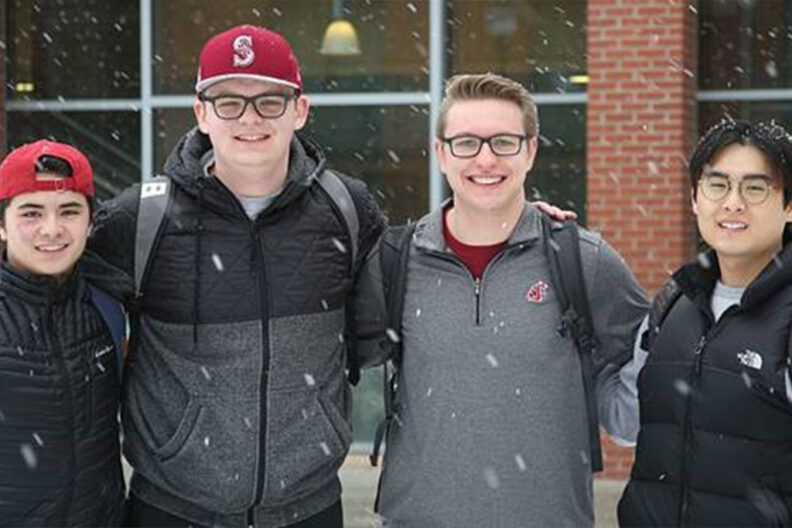Getting to Know You: Matthew Cho
ryan.pettitMatthew (far right) with SABR Diamond Dollars Case Study baseball analytics competition teammates: from left, Alex Yano, Dante Ludlow, Reagan Stubb, and Matthew.
Matthew Cho – Sport Management Undergrad
Name: Matthew Cho
Hometown: Bellevue, WA
Year: 2021
Favorite sport: Baseball
What inspired you to study Sport Management?
I have always wanted to work in sports, and I figured this would be the best degree for me. At the end of the day, sports are a business, and I felt that learning as much information about the behind-the-scenes would be beneficial.
What advice do you have for incoming students pursuing this degree?
Something I have always struggled with was creating connections and maintaining them. You never know who can help you in the future so make sure to never burn bridges!
Tell us about your extracurricular activities while at WSU!
I was an assistant coach for the Colfax High School baseball team and helped during the Palouse Summer Series in baseball.
In 2019, you were part of a team that participated in a baseball analytics case study competition. What was the experience like?
This was an eye-opening experience for me. Not only did I represent WSU, but some of the top analytical minds in baseball minds were there and I listened to them speak. It was very humbling and a great learning experience. It helped me realized that just knowing the numbers isn’t enough.
If you could witness any event—past, present, or future—what would it be? Why?
It’s tough to choose but I would probably go back to Game 5 of the 1995 American League Division Series between the Seattle Mariners and New York Yankees. This game saved baseball in Seattle, and I would have witnessed Ken Griffey, Jr. and Edgar Martinez in their prime.
What do you consider to be your greatest achievement?
Probably getting my current internship with Seattle University’s baseball team. Being able to influence the game plan, digging into the numbers, and providing support to the coaching staff has been awesome.
Where do you see yourself in ten years?
Hopefully in a position of influence in terms of game planning, scouting, and analytics for a baseball organization.
Your advice to students coping with the pandemic?
Continue looking for experiences. Organizations look for passion, but writing down you have passion on a resume isn’t enough. Rather than staying home and waiting for an opportunity, you can create a blog or a website and show your passion. However, at the end of the day, life is bigger than just sports, so take care of yourself and spend quality time with your loved ones!










